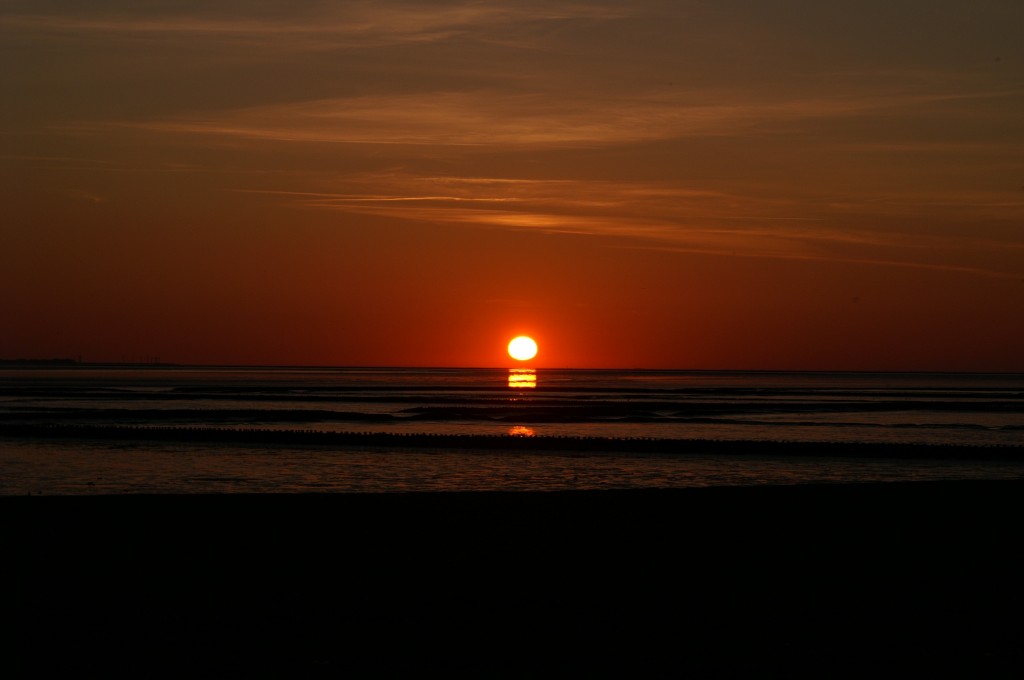
Genesis 1:5
And God called the light Day, and the darkness he called Night. And the evening and the morning were the first day.
The above Scripture says it all and I don’t want to tease you into reading a long drawn out explanation of when the Biblical day starts just to get to my answer in the end.
So here: the day starts at “even” — or evening — or when the sun is setting.
From even to even
Thanks to Deuteronomy 16:6 we know for sure that even — or evening — is absolutely referring to sunset. Not much lost in translation here. We also know from Scripture that the evening is seen as the start and ending point, sometimes even a marker for a time of renewal and other times as a sort of deadline. In Leviticus 23 we see Passover starting at the evening of the 14th day of Abib. Often times those who celebrate the Passover now days will celebrate the whole day but in actuality the Passover is instructed to be kept at the very end of the day, that is, at the setting of the sun. Technically, the Passover is the beginning of the 15th day of Abib or otherwise known as the first day of Unleavened bread [Leviticus 23:4-7]. This is why Mark 14:12 indicates that the Passover lamb is prepared on the first day of Unleavened Bread. This confirms that the evening of the 14th day of Abib (aka Passover) is also the start of the 15th day of Abib (aka first day of Unleavened Bread), otherwise Mark 14:12 would be telling us that our ancestors were preparing the Passover a day late. This helps explain why Leviticus 23:32 tells us to keep our sabbaths from sunset to sunset and why we see that a man or woman that is deemed unclean could not return to camp until evening [Leviticus 11, Lev 15]. The sunset marked the division of the day; the mixing of the previous day into the next.
Good morning!
Still, even with those examples there are some places in Scripture and Epistle letters that may give us a different idea, at least initially. There are times in the Bible when it seems like the morning starts the day, like Lamentations 3:22-23 which tells us every morning Yah has new mercies or Exodus 16:23 that refers to the Sabbath as tomorrow and says that the manna should be kept until the morning. When looking at these it surely seems that the day starts with the daylight. But think about it. Does our day start in the daylight? No. It starts in the middle of the night, yet we refer to morning as the start of our “day” because that’s when we wake up. The same with Hebrews in the Bible. We know this from what Paul the apostle told us in Thessalonians 5:6-7, people sleep at night. So there will always be references of starting activities in the morning but that doesn’t mean that the day — as in 24 hours — starts at dawn nor does it nullify what was stated in the beginning [Genesis 1:5].
Although this is common to our everyday lives, there is still a bit of confusion in the world of the Bible readers that some people esteem as scholars. When we look at our calendars for a particular day of the month we don’t limit our understanding of “day of the month” to only meaning the hours of sun light. However we might say — especially here in Las Vegas — “Wait until the sun goes down, it’s too hot to go outside during the day.” Likewise, when the Most High created the heavens and the earth He called the light “Day” then told us that the “first day” was only deemed the “first day” after the light (Day) and the darkness (Night) passed [Genesis 1:5]. So we already see here that there are two understandings of the word “day” or in Hebrew “Yowm” (H3117). Day refers to the 12 hours of light and also can refer separately to the 24 hour cycle of light and darkness. The Biblical 24 hour period is from sunset to sunset.
